Cities need to improve public transport to reduce air pollution
Updated: 2015-04-03 07:32
(China Daily USA)
|
||||||||
AT A RECENT environmental supervision conference, the Ministry of Environmental Protection said it had finished analyzing the chief air pollution sources in nine major cities nationwide. Exhaust fume from vehicles was the major pollutant in Beijing, Guangzhou, Hangzhou and Shenzhen. Vehicle exhaust emissions and dust were the primary pollutants in Tianjin, Shanghai and Ningbo. Comments:
Having tracked pollution sources, the next step is to curb them. According to our research, automobiles account for a higher percentage of pollutants when there is severe pollution, because other pollution sources are more stable. In order to reduce the number of days with extreme smog, we advise city authorities to limit the use of automobiles on those days.
Chai Fahe, deputy dean at China Research Academy of Environmental Sciences, April 2
The research of the environmental protection ministry shows that the main sources of pollution vary in different cities: automobiles in Beijing, coal-burning in Nanjing and industrial plants in Shanghai. These cities should draft their own plans to curb air pollution, and we expect more details of the ministry's research be released to help the cities.
Su Jiong, a professor at the College of Resources and Environmental Sciences, East China Normal University, April 2
The research results might encourage city authorities to take more effective measures to cope with pollution. However, it should also be noted that, unlike solid waste, air flows from city to city, carrying pollutants with it. Therefore, most of the cities need to take comprehensive measures to effectively curb air pollution and coordinate with each other in order to improve the air quality of the whole region.
Beijing Times, April 2
In several cities, including Beijing, Hangzhou and Guangzhou, the chief pollutants are said to be automobiles; yet they have already taken measures to limit the purchase or use of cars. At the same time they need to improve their public transport systems so they cost less for people to use and offer greater convenience, so that residents will choose to use public transport instead of cars.
Beijing Youth Daily, April 2
Hangzhou, which has attempted to curb air pollution by restricting the buying and use cars, is worth studying because the public debate continues. Some urge car owners and potential car owners to use their cars less to help improve the air quality, while some insist that owning and using a car is their legal right. How to rally common sense to support pollution-curbing measures remains a huge task for local governments.
Qianjiang Evening News, April 2
(China Daily USA 04/03/2015 page16)
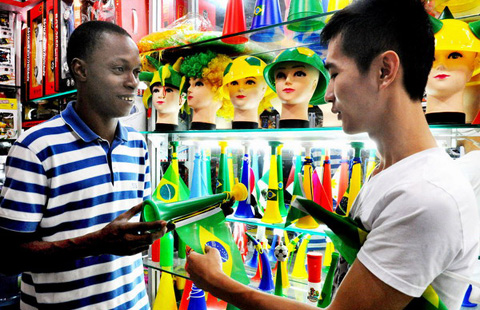
 Top 5 cooperation priorities in the Belt and Road Initiative
Top 5 cooperation priorities in the Belt and Road Initiative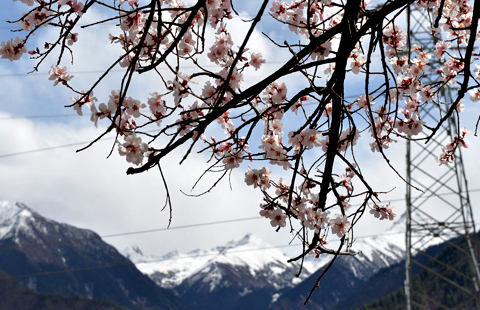
 10 destinations for a Qingming outing
10 destinations for a Qingming outing
 'Silk Road' captured in planted field
'Silk Road' captured in planted field
 Teaching on a rope
Teaching on a rope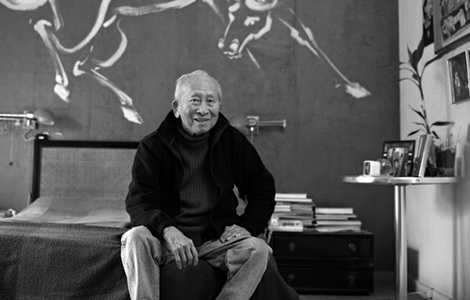
 Bambi artist, 104, has show in NYC
Bambi artist, 104, has show in NYC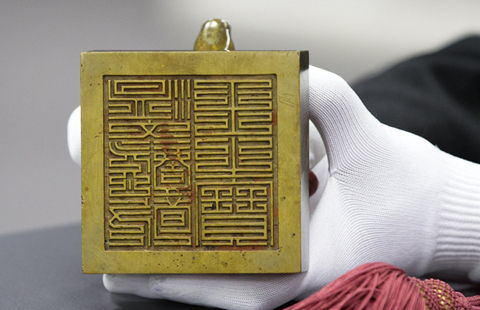
 US returns ancient Royal Seal of King Deokjong to S. Korea
US returns ancient Royal Seal of King Deokjong to S. Korea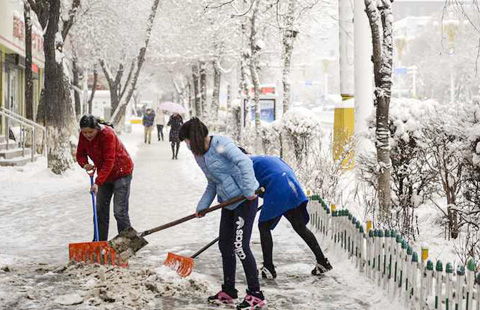
 Snowfall hits China's Urumqi
Snowfall hits China's Urumqi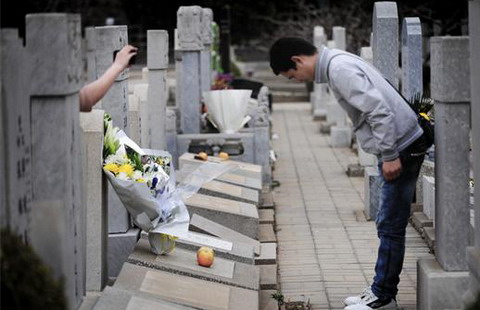
 'Tomb-sweeping services'
'Tomb-sweeping services'
Most Viewed
Editor's Picks

|

|

|

|

|

|
Today's Top News
Democratic senator pleads not guilty to corruption
China still No 1 for US adoptions
Mainland objects after US fighter jets land in Taiwan
Disgraced former security chief faces raft of charges
Obama: Iran framework could make world safer
China to play bigger intl role: blue book
China remains No 1 for
US adoptions
Death toll rises to 147 in Kenya university attack
US Weekly

|

|





